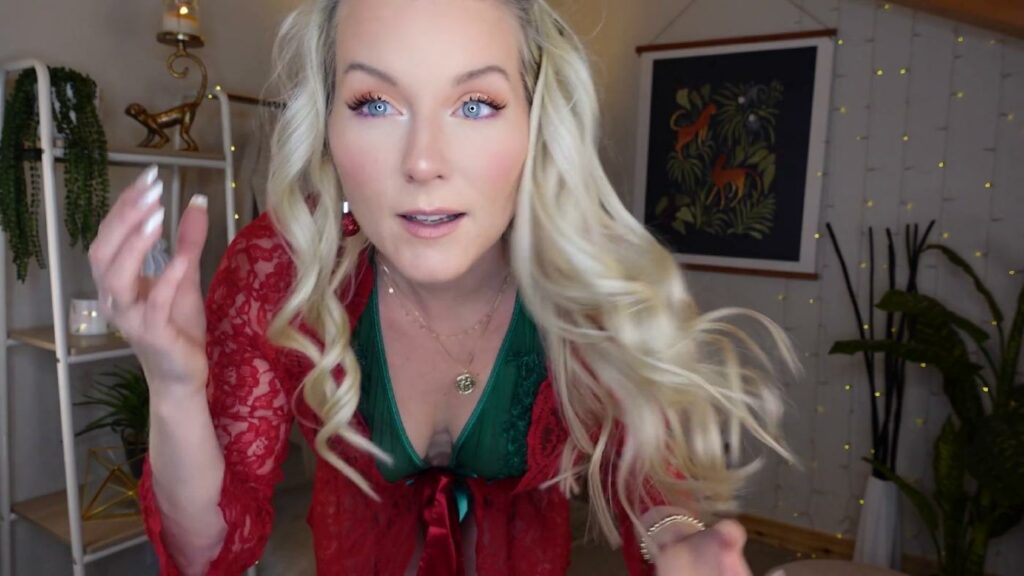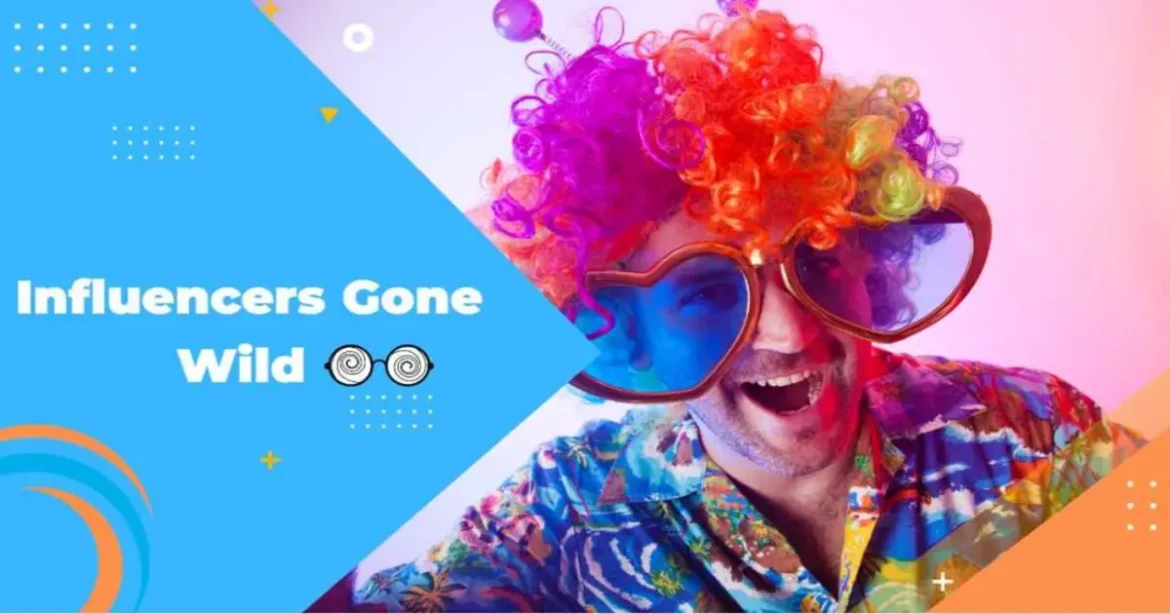Are we witnessing the dawn of a new era of digital delinquency, where the pursuit of likes and shares eclipses ethical considerations? The disturbing trend of the "influencer gone wild" is not just a fleeting internet oddity; it's a stark reflection of a society grappling with the consequences of unregulated online influence.
An "influencer gone wild" embodies the paradox of modern fame: a social media personality, often amassing a colossal following, who subsequently engages in behavior that ranges from outrageous to downright dangerous, all too frequently driven by the siren song of attention or the allure of profit. Picture the spectacle of sexually suggestive content splashed across platforms, the reckless promotion of products with potentially lethal consequences, or the digital battlefield where influencers wage very public, and often very personal, feuds.
This unsettling phenomenon has pierced the public consciousness in recent years, igniting a firestorm of debate around the ethical responsibilities shouldered by influencers and the profound impact their actions have on their impressionable followers. While some beacons of online influence harness their platforms to illuminate critical causes and disseminate positive messages, a disquieting number have brazenly crossed the line, venturing into territories of harmful and exploitative conduct.
- Calli Gilchrist The Rising Star Whorsquos Taking The Entertainment World By Storm
- Nosc Alameda Your Ultimate Guide To Unlocking The Secrets
The genesis of this "influencer gone wild" culture is rooted in a confluence of complex factors. These include the relentless pressure on influencers to perpetually capture and retain audience engagement, the increasingly blurred boundaries between the personal and professional domains within the social media sphere, and the conspicuous absence of robust regulatory frameworks governing the influencer industry.
| Influencer Industry Data | |
|---|---|
| Market Size (2023) | Estimated $16.4 Billion |
| Projected Growth (2024) | 10-15% annually |
| Top Platforms | Instagram, TikTok, YouTube |
| Regulation Status | Largely unregulated, varying guidelines by country |
| Ethical Concerns | Misleading endorsements, lack of transparency, harmful content |
| Source: Statista Influencer Marketing Report |
Influencers, in essence, are individuals who have meticulously cultivated a substantial following across various social media platforms. This dedicated audience grants them significant sway over perceptions, behaviors, and, crucially, purchasing decisions. However, the escalating trend of influencers indulging in outrageous or patently controversial behavior, often branded as "influencer gone wild," has ignited profound unease. This disquieting trend casts a long shadow over the ethical responsibilities that these individuals should uphold and the broader implications of their actions on the very fabric of society.
- Attention-Seeking: In their relentless quest to maintain relevance and engagement, influencers who have "gone wild" frequently resort to attention-grabbing stunts or calculated controversies.
- Profit-Driven: Ethical considerations often take a back seat as some influencers aggressively prioritize financial gain. This manifests in the promotion of products or services without proper vetting or transparency, leaving followers vulnerable.
- Moral Compass: A lack of a robust moral compass can be a significant contributor. This deficiency can lead influencers down paths of harmful or exploitative behavior, disregarding the well-being of their audience.
- Lack of Regulation: The influencer industry remains largely uncharted territory in terms of regulation. This absence of oversight empowers influencers to operate with minimal accountability, creating a breeding ground for questionable practices.
- Social Impact: The reverberations of actions taken by "influencers gone wild" can have a devastating impact on their followers, particularly young and impressionable demographics.
The phenomenon of the "influencer gone wild" serves as a glaring indictment of the need for a radical overhaul, demanding the implementation of stringent ethical standards and comprehensive regulation within the influencer industry. Influencers must recognize and embrace their inherent responsibility to leverage their platforms in a responsible manner, placing the well-being of their followers above fleeting fame or financial enrichment. Simultaneously, consumers must cultivate a discerning eye, carefully selecting the influencers they choose to follow and critically evaluating the content they disseminate.
- Kia Becht The Ultimate Guide To Understanding Everything About This Trending Topic
- Tara Maloney The Rising Star Shaping The Future Of Entertainment
Attention-seeking behavior constitutes a defining characteristic frequently observed among influencers who have "gone wild." Within the hyper-competitive arena of social media, influencers find themselves perpetually engaged in a fierce battle for attention and unwavering engagement from their followers. To effectively cut through the noise and command attention, some influencers resort to increasingly outlandish and controversial tactics, designed to sustain their relevance and visibility in the ever-shifting digital landscape.
This relentless pursuit of attention can manifest in a myriad of forms, ranging from the publication of provocative and overtly revealing photographs to active participation in very public and often acrimonious feuds with rival influencers. Some individuals even venture into dangerous or outright illegal activities, all in the name of capturing the fleeting spotlight. While such tactics may yield short-term gains, such as a surge in buzz and an inflated follower count, they invariably come at a steep price, tarnishing the influencer's reputation and eroding their credibility.
Furthermore, the corrosive effects of attention-seeking behavior extend far beyond the influencer themselves, inflicting damage upon their audience. Young and impressionable followers, often drawn to the allure of controversy and sensation, may find themselves exposed to harmful or wholly inappropriate content. "Influencers gone wild" have been known to endorse unhealthy or even dangerous products or behaviors, and they may actively engage in cyberbullying and other forms of online harassment, further contributing to a toxic digital environment.
In summary, the insatiable thirst for attention represents a primary driver behind the disturbing phenomenon of "influencers gone wild." When influencers prioritize the pursuit of attention above any semblance of ethical consideration, they inflict damage upon their followers and, more broadly, upon the entire social media ecosystem.
Financial incentives can exert a powerful influence, driving influencers to engage in behavior that is not only unethical but also potentially harmful. When the pursuit of profit takes precedence over ethical principles, influencers may find themselves promoting products or services without conducting adequate due diligence, neglecting to disclose potential conflicts of interest, or downplaying the inherent risks associated with the products they endorse.
- Misleading Endorsements: "Influencers gone wild" may lend their name and reputation to products or services that they do not genuinely believe in or have not subjected to rigorous testing. This is often motivated solely by the financial compensation they receive for their endorsement.
- Lack of Disclosure: Transparency is often sacrificed in the pursuit of profit. Influencers may deliberately conceal their financial relationships with the brands they promote, leading their followers to mistakenly believe that their recommendations are unbiased and trustworthy.
- Promotion of Harmful Products: In the most egregious cases, "influencers gone wild" may actively promote products or services that pose a significant risk to the well-being of their followers. This prioritization of financial gain over the safety and health of their audience represents a profound ethical lapse.
- Exploitation of Followers: Followers may be viewed not as a community to be served and inspired, but as a means to an end a resource to be exploited for financial gain. This transactional mindset undermines the very foundation of trust that should exist between influencers and their audience.
The profit-driven nature of some influencers is a key ingredient in the recipe for the "influencer gone wild" phenomenon. When financial considerations eclipse ethical principles, influencers erode the trust of their followers and inflict lasting damage on the reputation of the influencer industry as a whole.
A steadfast moral compass serves as an indispensable guide, directing ethical decision-making and shaping responsible behavior. Influencers who lack this internal compass are far more likely to succumb to the temptation of harmful or exploitative behavior in their relentless pursuit of fame, fortune, or fleeting attention.
- Unethical Endorsements: Influencers who have lost their way may endorse products or services that they know to be inherently harmful or deliberately misleading. Their decisions are driven purely by financial incentives, with scant regard for the potential consequences faced by their followers.
- Exploitation of Followers: The absence of a guiding moral compass can lead influencers to view their followers as nothing more than a revenue stream a means to generate income rather than a community to nurture and inspire.
- Cyberbullying and Harassment: "Influencers gone wild" may actively engage in cyberbullying and harassment, targeting other influencers or individuals who dare to cross their path. Their actions are often calculated, designed to provoke controversy and boost their own profile, regardless of the emotional toll inflicted upon their victims.
- Lack of Accountability: A key characteristic of influencers who have strayed from the path of ethical behavior is their unwillingness to accept responsibility for their actions. They are often reluctant to apologize for harmful behavior, preferring to deflect blame or simply ignore the consequences of their choices.
The absence of a strong moral compass represents a critical factor contributing to the disconcerting phenomenon of the "influencer gone wild." When personal gain is elevated above ethical considerations, influencers inflict damage upon their followers and contaminate the broader social media environment.
The conspicuous absence of robust regulation within the influencer industry looms large as a primary contributor to the worrying trend of the "influencer gone wild." Lacking clearly defined guidelines and effective enforcement mechanisms, influencers are, to a large extent, left to self-regulate their behavior. This system, or lack thereof, creates a breeding ground for unethical and potentially harmful practices.
One of the core challenges lies in the inherently subjective nature of defining what constitutes "influencer gone wild" behavior. The boundary between acceptable and unacceptable conduct can be frustratingly vague, and influencers may inadvertently engage in questionable practices without fully grasping that they have crossed an ethical line.
For instance, influencers may actively promote products or services without disclosing their financial relationships with the brands involved, thereby deceiving their followers and compromising their trust. Similarly, they may engage in cyberbullying or other forms of online harassment, often with the explicit intention of generating controversy or advancing their own interests at the expense of others.
Without the presence of clear regulations and effective enforcement mechanisms, holding influencers accountable for their actions becomes an exercise in futility. Those who engage in harmful or unethical behavior may face minimal, if any, consequences, emboldening them to persist in their destructive patterns.
The lack of regulation within the influencer industry is not merely a concern; it is a critical issue that demands immediate attention and decisive action. The establishment of clear guidelines, coupled with robust enforcement mechanisms, is essential to safeguarding consumers from the potential harm and unethical practices perpetrated by unscrupulous influencers.
"Influencers gone wild" possess the capacity to inflict substantial harm upon their followers, particularly those who are young and impressionable. Their actions can manifest in a number of detrimental ways, including:
- Promoting harmful behaviors: The promotion of unhealthy lifestyles, engagement in dangerous activities, and the endorsement of harmful products are all hallmarks of influencers who have lost their way. Examples include the glorification of excessive alcohol consumption, the normalization of drug use, and the promotion of extreme dieting practices that can have devastating consequences.
- Damaging self-esteem: "Influencers gone wild" often curate an idealized and often unattainable version of themselves, projecting an image of perfection that can lead their followers to engage in relentless and ultimately damaging self-comparison, fostering feelings of inadequacy and eroding their self-worth.
- Spreading misinformation: The dissemination of false or misleading information represents another potent threat. By spreading inaccuracies and unsubstantiated claims, these influencers can negatively impact their followers' decision-making processes, leading them down paths of misinformation and misguided choices.
- Exploiting trust: Perhaps the most insidious tactic employed by "influencers gone wild" is the deliberate exploitation of their followers' trust. This can manifest in the promotion of products or services that they do not genuinely believe in or have not subjected to rigorous testing, prioritizing personal gain over the well-being of their audience.
This section addresses frequently asked questions surrounding the troubling phenomenon of the "influencer gone wild," delving into its underlying causes, far-reaching consequences, and potential solutions.
Question 1: What is "influencer gone wild"?
The term "influencer gone wild" describes a social media personality who, after cultivating a significant following, subsequently engages in behavior that is deemed outrageous or controversial, often driven by a desire for attention or the pursuit of financial gain.
Question 2: What are the causes of "influencer gone wild" behavior?
The factors contributing to "influencer gone wild" behavior are multifaceted and complex. However, some commonly observed drivers include a relentless pursuit of attention, the allure of financial incentives, the absence of a strong moral compass, and the lack of effective regulation within the industry.
Question 3: What are the consequences of "influencer gone wild" behavior?
The repercussions of "influencer gone wild" behavior can be profound, affecting both the influencers themselves and their unsuspecting followers. Influencers may find their reputation tarnished, experience a decline in their follower base, and even face legal ramifications. Followers, on the other hand, may be exposed to harmful or misleading content, suffer negative impacts on their self-esteem, and become victims of financial exploitation.
Question 4: What can be done to address "influencer gone wild" behavior?
A multi-pronged approach is necessary to address "influencer gone wild" behavior. This includes implementing stricter regulations within the influencer industry, promoting ethical guidelines for influencers to adhere to, and educating consumers about the potential risks associated with blindly following online personalities.
Question 5: What are the key takeaways about "influencer gone wild" behavior?
The key insights regarding "influencer gone wild" behavior are that it represents a serious issue with far-reaching consequences, stemming from a complex interplay of contributing factors, and that proactive measures must be taken to mitigate its harmful effects.
Question 6: What is the future of "influencer gone wild" behavior?
The trajectory of "influencer gone wild" behavior remains uncertain. However, it is likely that this phenomenon will continue to adapt and evolve alongside the ever-changing social media landscape. It is imperative to maintain vigilance regarding the potential risks associated with following influencers and to actively support initiatives that promote ethical conduct within the influencer industry.
This concludes our exploration of frequently asked questions regarding the "influencer gone wild" phenomenon. We trust that this information has been informative and insightful.
Transition to the next article section:
In the forthcoming section, we will delve into the ethical implications of "influencer gone wild" behavior, examining the moral dimensions of their actions and discussing strategies for fostering responsible conduct within the influencer industry.
The phenomenon of the "influencer gone wild" presents a complex and deeply troubling situation, bearing significant consequences for both the influencers themselves and the individuals who comprise their audience. Influencers who choose to engage in outrageous or controversial behavior, driven by the pursuit of attention or the promise of financial gain, risk tarnishing their reputation, losing followers, and potentially facing legal repercussions for their actions. Simultaneously, their followers may be exposed to harmful or deliberately misleading content, suffer negative impacts on their self-esteem and overall well-being, and be exploited for financial gain.
Maintaining a heightened awareness of the potential risks associated with following influencers is paramount. Consumers should actively support efforts aimed at fostering ethical behavior within the influencer industry, demanding greater transparency and accountability from those who wield significant influence over their online communities. Individuals should cultivate a critical mindset when consuming content and should not hesitate to unfollow influencers who engage in harmful or unethical behavior. Moreover, influencers themselves must be held accountable for their actions and remain cognizant of the profound impact their behavior can have on their followers and the broader online landscape.
The future trajectory of "influencer gone wild" behavior remains uncertain, yet it is highly probable that this phenomenon will continue to evolve in tandem with the ever-shifting dynamics of the social media ecosystem. Maintaining vigilance regarding the potential risks associated with following influencers and actively championing initiatives that promote ethical behavior within the influencer industry are crucial steps in safeguarding the well-being of online communities.
- Rania Brody The Rising Star Redefining The Entertainment Industry
- Daniel Simmons Track The Untold Story Of A Rising Star In The Music Industry


